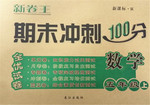题目内容
One thing that British and Chinese cultures share is a love for fine tea. Today, when we think of Western tea culture, we often think of the English and beautiful china tea cups.
Afternoon tea
People believe that an English lady, Anna, first introduced the idea of afternoon tea. In the 18th and 19th centuries, the English ate only two main meals each day: breakfast and a heavy supper that would last for several hours in the evening. As a result, people often got very hungry during the long wait between these two meals. To solve this problem, Anna came up with the clever idea of inviting some friends to join her for an afternoon meal between four and five o’clock. This meal included cakes and sandwiches. And tea was served(供应) to wash down the food. In order to make this afternoon meal important, fine china cups and plates and silver teapots, knives, forks and spoons were used. Soon, afternoon tea parties became popular social occasions. Today, afternoon tea parties continue to play an important part in the social life in modern Britain.
Will you come for coffee?
Coffee also has an important role in British culture. People often use the words “Will you come for coffee” to mean “Would you like to come to my home for a chat?” Normally, several different drinks such as tea, hot chocolate or a soft drink like orange juice will be served as well as coffee, and you will be asked what you would like. However, you will not normally be offered wine at a “coffee” party.
Coffeehouses and the London Stock Exchange
In the 17th century London, coffeehouses were busy and noisy places. Businessmen and bankers went to coffeehouses to do their business, as well as to drink coffee. In fact, the London Stock Exchange(伦敦股票交易所) is believed to have started from these coffeehouses.
小题1:Anna introduced the idea of drinking afternoon tea because she ______.
小题2:What does “social occasions” mean in Chinese?
小题3: If someone says to you “Will you come for coffee,” you ______.
小题4: From the last paragraph we can see______
小题5: Which is the best title of the article?
Afternoon tea
People believe that an English lady, Anna, first introduced the idea of afternoon tea. In the 18th and 19th centuries, the English ate only two main meals each day: breakfast and a heavy supper that would last for several hours in the evening. As a result, people often got very hungry during the long wait between these two meals. To solve this problem, Anna came up with the clever idea of inviting some friends to join her for an afternoon meal between four and five o’clock. This meal included cakes and sandwiches. And tea was served(供应) to wash down the food. In order to make this afternoon meal important, fine china cups and plates and silver teapots, knives, forks and spoons were used. Soon, afternoon tea parties became popular social occasions. Today, afternoon tea parties continue to play an important part in the social life in modern Britain.
Will you come for coffee?
Coffee also has an important role in British culture. People often use the words “Will you come for coffee” to mean “Would you like to come to my home for a chat?” Normally, several different drinks such as tea, hot chocolate or a soft drink like orange juice will be served as well as coffee, and you will be asked what you would like. However, you will not normally be offered wine at a “coffee” party.
Coffeehouses and the London Stock Exchange
In the 17th century London, coffeehouses were busy and noisy places. Businessmen and bankers went to coffeehouses to do their business, as well as to drink coffee. In fact, the London Stock Exchange(伦敦股票交易所) is believed to have started from these coffeehouses.
小题1:Anna introduced the idea of drinking afternoon tea because she ______.
| A.enjoyed chatting with her friends at home |
| B.loved fine tea and beautiful china tea cups |
| C.wanted to share nice food with her friends |
| D.found people felt hungry during the long wait between the two meals |
| A.集体婚礼 | B.社交活动 | C.社区表演 | D.公共场合 |
| A.will be offered coffee only |
| B.are asked what you would like to drink |
| C.will be asked to have a chat with him or her |
| D.you are invited to take part in an afternoon tea party |
| A.a new business was started in coffeehouses. |
| B.coffeehouses are still used by businessmen and bankers. |
| C.businessmen and bankers went to coffeehouses just for coffee. |
| D.most people wouldn’t like to go to coffeehouses because of the noise. |
| A.British and Chinese cultures. | B.The beginning of Tea and Coffee. |
| C.Coffeehouse and Business. | D.English tea and coffee culture. |
小题1:D
小题1:B
小题1:C
小题1:A
小题1:D
小题1:根据第二段In the 18th and 19th centuries, the English ate only two main meals each day: breakfast and a heavy supper that would last for several hours in the evening. As a result, people often got very hungry during the long wait between these two meals. To solve this problem, Anna came up with the clever idea of inviting some friends to join her for an afternoon meal 描述,可知选D。
小题1:联系上下文描述,可知下午茶成为一种流行的社交活动,故选B。
小题1:根据People often use the words “Will you come for coffee” to mean “Would you like to come to my home for a chat?”描述,可知选C。
小题1:根据In fact, the London Stock Exchange(伦敦股票交易所) is believed to have started from these coffeehouses. 描述,可知从咖啡屋发展出了一种新的商业活动。故选A。
小题1:通过阅读短文可知主要介绍了茶和咖啡在英国人社会生活中的重要作用。故选D,英国的茶和咖啡文化。

练习册系列答案
 课程达标测试卷闯关100分系列答案
课程达标测试卷闯关100分系列答案 新卷王期末冲刺100分系列答案
新卷王期末冲刺100分系列答案 全能闯关100分系列答案
全能闯关100分系列答案
相关题目